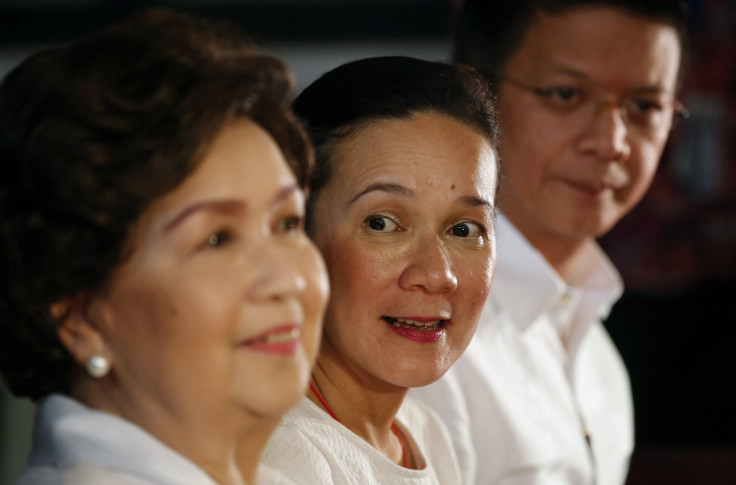Philippines Election: Supreme Court Allows Grace Poe To Run For President, Junks Disqualification Issue

MANILA -- Philippine presidential candidate Grace Poe, whose campaign was hounded by questions about her citizenship and residency, had her path cleared on Tuesday with the Supreme Court ruling in her favor. The decision could whittle the election to a two-person race between Senator Poe and Vice President Jejomar Binay.
The Supreme Court voted nine to six to grant her appeals on earlier rulings by the Commission on Elections. The commission had disqualified Poe in December on the grounds that her being a foundling meant it was impossible to tell if her parents were Filipino, which they would need to be for Poe to fulfill the constitution's "natural-born Filipino" requirement. The Comelec also ruled that she didn't meet a 10-year residency requirement because of a date she filled in her senatorial candidacy papers three years ago. In her appeal, Poe said she made an "honest mistake" with that date.
Just in: SC, 9-6, grants Sen. Grace Poe's petitions.
— SC PIO (Official) (@SCPh_PIO) March 8, 2016
Poe, 47, has been alternating in first and second place with Binay, 73, in surveys that started in mid-2015. The Supreme Court ruling will probably strengthen Poe, either giving her a clear lead over Binay, or cementing the campaign as a two-person race. That would leave Davao City Mayor Rodrigo Duterte and former Interior Secretary Manuel Roxas, President Benigno Aquino's candidate, further behind.
Aquino is barred from running for a second six-year term in the May 9 elections.
Binay said the ruling would have no effect on their campaign, saying whoever else is in or out of the race, he remains the most qualified.
Statement from UNA camp on SC's decision to reverse Poe's disqualification #Halalan2016 | via @jeffcanoy pic.twitter.com/XJ0xUDQjDl
— ABS-CBN News (@ABSCBNNews) March 8, 2016
Binay, a human rights lawyer during martial law in the 1970s and 1980s, was appointed mayor of Makati, the country's richest city, after Ferdinand Marcos was ousted in 1986. He was the mayor through 2010 — when he beat Roxas for vice presidency — except for one term when his wife took over. As vice president, he headed the country's main housing agency and took on some tasks related to Filipinos working abroad, a huge constituency. He quit the cabinet last year — while retaining the vice presidency — as the campaign heated up.
Poe went from the church she was found in to a charmed life after she was adopted by Fernando Poe Jr. and Susan Roces, one of the country's biggest movie star couples. She spent most of her 20s and 30s in the United States, where she got a political science degree from Boston College. She worked as a pre-school teacher and an employee of the U.S. Geological Survey and a scientific equipment company and started her family, settling in Fairfax, Virginia.
Along the way, she took U.S. citizenship, which is now fodder for some of her critics. She returned in 2005, after her father died the year before, though it is not clear when she officially became a resident again. When she ran for senator, she said she had been a resident since November 2006, which would make her short of the 10 years needed for presidency. It is also clouded by lack of details over when she sold her home in the U.S., or regained Philippine citizenship, or stopped using her U.S. passport.
Back in the Philippines, she took over her father's movie production company before Aquino appointed her as head of the country's movie and TV classification board. In 2013, she unexpectedly topped the election for senators, who are voted on nationally, making her a leading candidate for this year.
Statement from Sen. Poe's spokesman Mayor Rex Gatchalian on SC decision. #Halalan2016 | @jeffcanoy pic.twitter.com/xttU0XexgT
— ABS-CBN News (@ABSCBNNews) March 8, 2016
© Copyright IBTimes 2024. All rights reserved.











